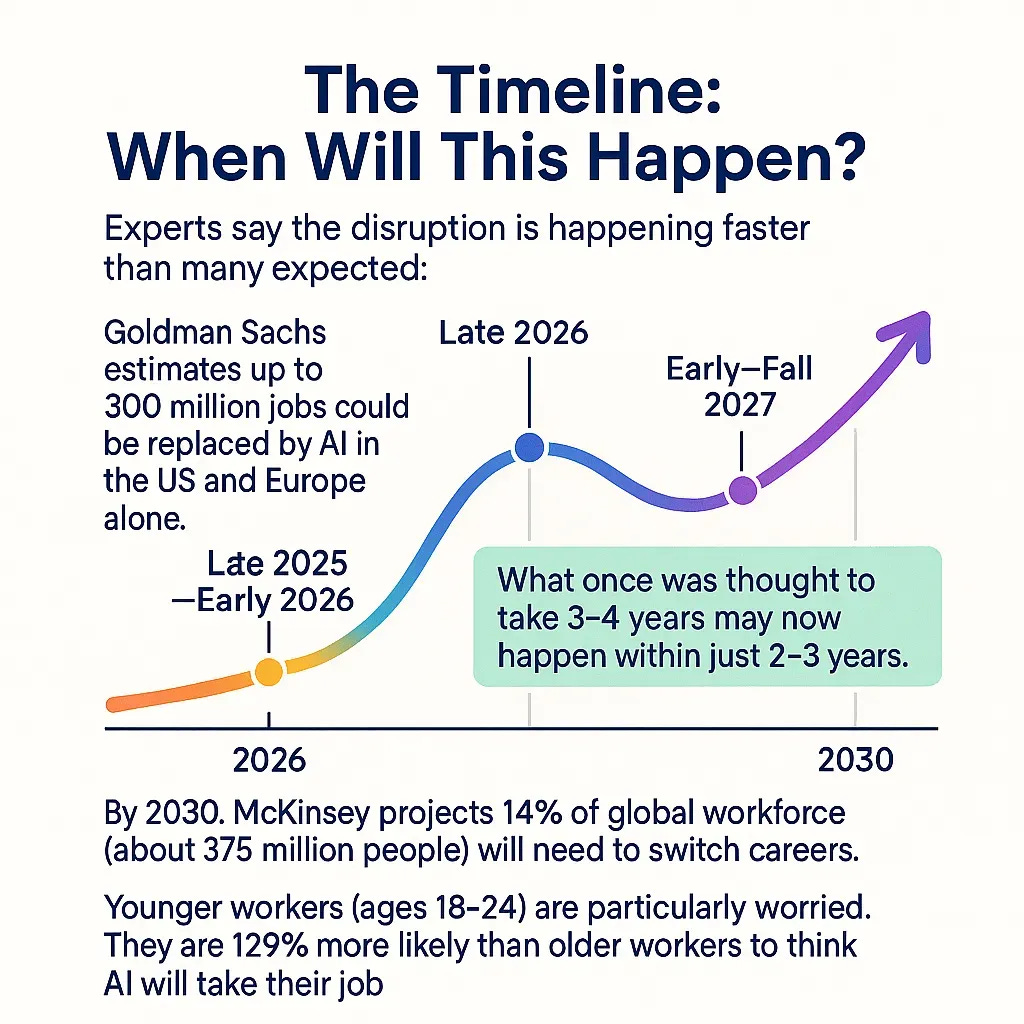Will AI Wipe Out White-Collar Jobs?
Anthropic CEO’s Stark Prediction Explained
The work world is changing fast
The world of work is changing faster than many expected, driven by rapid advances in artificial intelligence. If you're wondering what this means for your job you’re not alone.
As artificial intelligence rapidly evolves, concerns about its impact on jobs are growing louder. In a recent statement, Anthropic CEO Dario Amodei warned that AI could eliminate up to half of all entry-level white-collar jobs within just five years.
But what does this mean for workers, and which industries are most at risk? Let’s break down what you need to know.
Table of Contents
🕖 TL;DR
🗣️ What Happened?
📅 Timeline and Industries at Risk
🌤️ Is There Any Good News?
🧭 What Should You Do?
🏁 Final Thoughts
TL;DR
AI is advancing fast, and major job disruption is on the horizon. Dario Amodei, CEO of Anthropic, warns that 10–20% unemployment in white-collar fields like tech, law, and finance could be coming soon. Industries most at risk include finance, manufacturing, retail, admin, customer service, content creation, and food service. Job losses may occur in three waves starting as early as late 2025. There may be hope as most companies using AI still plan to hire, especially those with the right skills. To prepare, stay informed, reskill, be adaptable, and learn to work with AI. The disruption is real, but so are the opportunities.
What Happened?
Dario Amodei, CEO of Anthropic (The creator of Claude), recently told Axios that technology is advancing so quickly that 10-20% unemployment in fields like tech, law, finance, and consulting is possible in the near future. He emphasized that many people, especially lawmakers, don’t fully realize the scale of these changes.
“We, as the producers of this technology, have a duty and an obligation to be honest about what is coming.”
While Amodei isn’t against developing AI, he strongly urges governments, businesses, and individuals to start preparing now. This includes increasing public awareness, reskilling workers, and crafting new policies to help manage the transition.
Timeline and Industries at Risk
Industries at Risk
While robots and AI have already changed industries like manufacturing and retail, the next phase will impact many more white-collar jobs. Here are some sectors experts believe are most vulnerable:
Financial Services & Banking: The World Economic Forum predicts 30% of jobs could vanish by 2030, especially middle management roles.
Manufacturing: Up to 59% of tasks may be automated. Routine factory jobs are at high risk.
Retail: Positions like cashiers and sales associates may decline sharply as automation and self-checkout expand.
Office Administration: Clerical work, data entry, and similar roles are highly automatable.
Customer Service: AI-powered chatbots and virtual assistants increasingly handle routine inquiries.
Content Creation: 81.6% of digital marketers think AI will reduce demand for content writers.
Food Service: Fast-food cashiers and counter staff are increasingly replaced by kiosks and robots.
If your role involves repetitive tasks, high-volume data processing, or structured problem-solving, it’s particularly at risk.
Is There Any Good News?
While headlines often focus on the jobs that AI might replace, there are many positive developments and opportunities emerging as well. Here’s what you should know:
1. New Jobs and Roles Are Being Created
For every routine job AI automates, new kinds of roles are springing up. These include:
AI trainers and explainers: People who help teach AI systems or interpret their outputs for businesses.
Prompt engineers and data annotators: Specialists who craft the right instructions for AI or sort and label data to train algorithms.
AI ethicists and policy experts: Professionals who ensure AI systems are fair, unbiased, and used responsibly.
Automation supervisors: Humans who oversee and fine-tune AI-driven processes.
2. AI Skills Are in High Demand
Companies are actively seeking candidates who understand how to work with AI, even at a basic level. This includes:
Knowing how to use AI-powered tools (like ChatGPT, Claude, or Copilot)
Understanding AI-generated data and insights
Basic programming, analytics, or automation skills
You don’t have to be a computer scientist! Many free or affordable online courses can help you gain these skills.
3. Higher Productivity & More Fulfilling Work
AI can take over repetitive, boring tasks, freeing people to focus on creative, strategic, or people-oriented work that is more engaging. This might mean:
More time for problem-solving and innovation
A shift from manual data entry to meaningful analysis or decision-making
Opportunities to focus on roles that require empathy, creativity, and human judgment
4. Growth in Entirely New Industries
Just as the internet led to jobs in e-commerce, digital marketing, and app development, AI is catalyzing brand-new sectors:
AI-powered healthcare solutions
Next-generation education tools
Advanced robotics, cybersecurity, and smart infrastructure
5. Support for Career Transitions and Learning
Because business leaders recognize the shift, there’s growing support for:
Retraining and up-skilling: Many companies offer training programs and stipends for employees to learn new skills.
Government investment: Increasing public funding is earmarked for workforce development in technology and AI.
6. AI as an Equalizer
AI tools can make highly skilled functions accessible to more people. For example:
Small businesses and solo entrepreneurs can use AI for marketing, legal research, or customer service—levels of support that only big companies could afford before.
Language barriers and technical know-how are easier to overcome with intelligent assistants.
What Should You Do?
Here are some simple steps for navigating this AI-driven future:
Stay informed: Follow trusted sources for AI news and trends.
Learn new skills: Explore online courses in AI, data analysis, or digital communication. Even basic knowledge helps.
Be adaptable: Flexibility and willingness to learn will be more valuable than ever.
Embrace AI tools: Learn to use AI in your daily work; being “AI-augmented” makes you more employable.
Advocate for policies: Support measures that retrain workers and protect vulnerable groups during the transition.
Final Thoughts
AI’s impact on jobs is no longer a far-off prediction as it’s happening now. While some roles will disappear, new opportunities will also emerge for those ready to adapt and learn. It will be vital to prepare yourself and to stay positive. AI is a tool. By learning to use it, you can ensure your skills stay relevant in the years ahead.
Content was researched with assistance from advanced AI tools for data analysis and insight gathering. 









